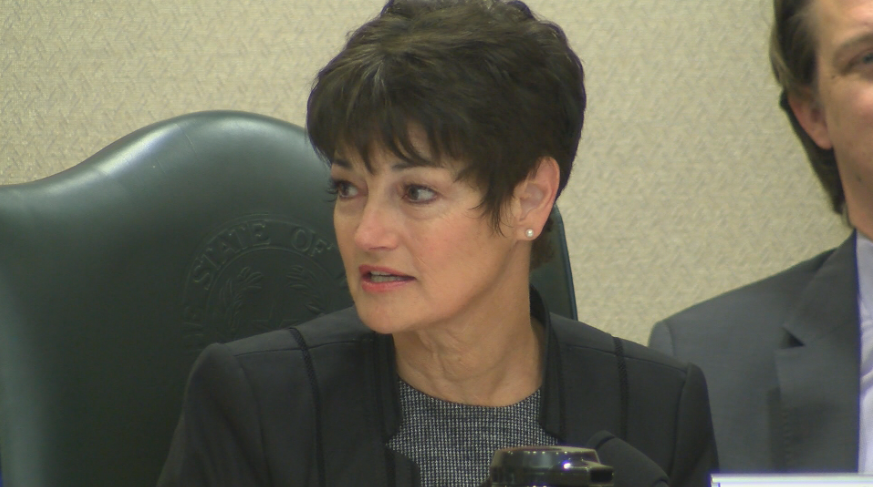AUSTIN (Nexstar) — All Jay and Amy Novacek want for their 22-year-old son is for him to get some quality of life back.

Blake Novacek, son of the former Dallas Cowboys tight end, had dreams of working in sports journalism and already had broadcasting experience before entering college. However, he was brutally injured in a fraternity hazing incident during his time at the University of Oklahoma and was left with a traumatic brain injury. Seizures and constant pain are now a part of daily life. The Novaceks say he takes some opioids for the pain and other medications for his seizures, but they only provide short-term help. At one point, he was able to access medical cannabis and was pain and seizure-free, Amy said. However, due to the current law in Texas, he can’t access it and doesn’t use it.
“One of the main things is when you don’t even have an option to get out of bed because you can’t,” Jay said. “When you sit there and have a 22-year-old that doesn’t want to do anything because of the medications, because of the headaches and because of all the symptoms that are there.”
The seizures used to take place primarily during the mornings and evenings. But they’re getting worse.
“He can’t work,” Amy said. “He cannot go to school now because of that and because he does not have the medical cannabis. He has no quality of life. What is that for a 22-year-old who used to have the world by the tail? Because of his assault, his life is moving from the bed to the chair and possibly the kitchen. He does and can, medicated highly on opioids, go to a Cowboys game, but he suffers severely and will be in bed for a week afterward.”
Just this week, he had a seizure at the Texas State Capitol when he was here with his parents, hoping to meet with lawmakers to share his story.
The Novaceks testified during the Senate Health and Human Services Committee at the Texas Capitol Friday in favor of a bill that would expand the Texas Compassionate Use Act. Enacted in 2015, the law currently allows patients with intractable epilepsy to access low-THC CBD oil. A committee substitute to House Bill 3703, filed by Rep. Stephanie Klick, R-Fort Worth, would allow patients with epilepsy, seizure disorders, multiple sclerosis and spasticity to access low-THC CBD oil. It would also apply to patients with incurable, neuro-degenerative diseases like Parkinson’s, Huntington’s, Alzheimer’s, terminal cancer and autism. The bill keeps the dose restriction at .5 percent THC.

“Five years ago, if you told us we’d be advocating for cannabis, we would’ve said you’re crazy,” Amy said. “Not that we were against it or for it, per se, just that it was the law and is the law. Everyone says that’s not me and so that really doesn’t pertain to me until it does. Guess what? It does.”
Through their experiences with their son and after hearing other families’ stories, they’ve realized how important it is to have options for medicine, the Novaceks told lawmakers.
“It’s absolutely critical,” Amy said. “We’re a family that did and has done and is willing to do whatever the doctors tell us to do.”
She also explained that through her service dog training program, she met a 16-year-old baseball player with cystic fibrosis. He had to skip his baseball championship with his team due to his condition and because he can’t breathe on his own. Amy asked legislators to also consider adding cystic fibrosis to the list of conditions that would be covered under the law in future sessions.
Sen. Jose Menendez, D-San Antonio, filed similar legislation in 2015 and 2017. He spoke with the committee as well. His wife, who has multiple sclerosis, has a fentanyl patch and also had two back fusions.
“She hates the narcotics because they keep her in a mental haze,” he said.
“She doesn’t smoke and hates to smoke and doesn’t drink,” he added. “It’s not about getting some altered state. It’s about not being in pain and not being in a mental haze.”

This version of the bill, sponsored by Sen. Donna Campbell, R-New Braunfels, would still require oversight from the Texas Department of Public Safety. Campbell said Lt. Gov. Dan Patrick worked with senators on the language in the committee substitute.
“He, too, heard your story and he’s been – he’s so compassionate himself about things and I just wanted you to know that there are so many of us, we heard the stories, we know the stories and we are very supportive,” she said.
Legislators on the committee unanimously voted out the bill. It will need a vote by the Texas Senate next week.



























